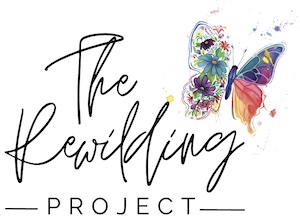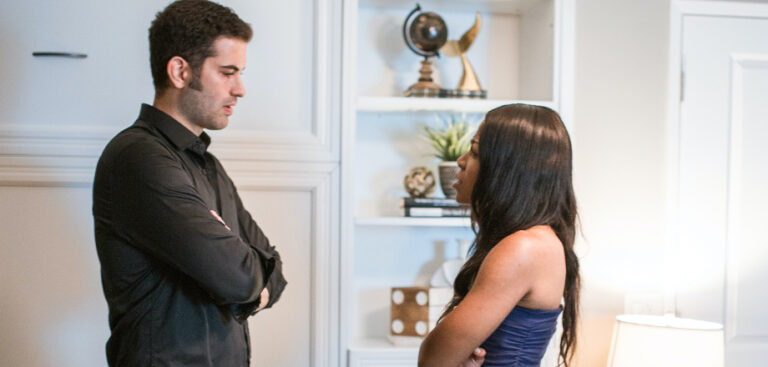Use your words – you gotta speak up.
Let’s finally address the BS idea that “if they really cared, they’d just know.”
Seriously.
It’s in every rom-com book, movie, or play ever written. That moment towards the end right before the happily-ever-after moment. When the lead characters are about to walk away from the relationship, because they’ve had some miscommunication that the audience can see but for the sake of the plot, the characters can’t.
It’s this notion that “if they really knew me, they should know” and the whole script leads to this critical moment where one of the characters finally says how they really feel and all is forgiven and forgotten and the credits roll, the implication is that the couple now rides off into the sunset and live happily ever after…
It’s not a thing.
Seriously.
In real life, that’s not a thing.
Doesn’t matter how many times a writer, producer, or director creates a script with their version of the spin on this formula, outside the lights and cameras of Hollywood this doesn’t happen.
You know what actually happens?
- A couple gets together
- Only partially communicates what’s really going on for them
- They have a miscommunication and get into a fight
- Have one of those rom-com movie climax moments
- Think they’ve done and said ‘the thing’ and now everything’s fine and they’re going to live happily ever after…
And then 4 days later something else is causing a problem and they’re back where they started.
The truth is communication is HARD.
Doing it well, being personally responsible, kind, and TRUTHFUL is hard to do. It requires a level of emotional awareness and maturity that lots of people have managed to avoid learning.
So let’s talk about the basics required to communicate well and in-turn build the connected relationships you actually want.
The Basics: What you say.
When I start working with a couple, one of the things we usually address within the first few sessions is related to the things they share with each other versus the things they hide…
What does that mean?
Well, usually when people are talking to each other, they’ll edit the information they share with each other. This means they’ll:
- Say only pieces things
- Avoid saying things completely
- Sugarcoat things so the truth is vague or lost
- Hint at something hoping the message will get “picked up on”
This usually happens because of a fear of something. They will hold back on talking about something or asking for something they need because they are too afraid, uncomfortable, embarrassed, or ashamed to ask for it.
That fear or concern usually comes from an experience they had in the past that didn’t go well. They’ve experienced some sort of emotional hurt or wounding that left them feeling vulnerable in some way.
In an effort to avoid feeling vulnerable again, they assume (unconsciously) that not talking about whatever that thing is will stop them from feeling the discomfort again.
This is simply not true.
The tendency to avoid feeling vulnerable really gets in the way of building connected relationships.
Sharing your experiences with people who care about you and accept you in spite of your shortcomings and downfalls, builds a true emotional connection.
As counterintuitive as it may seem to lean into sharing what’s really going on for you, it’s through those conversations and the perceived risk you take in having them (vulnerability), that you create deep emotional intimacy.
The Basics: How you say it.
The next thing that is addressed when I work with a couple is how they communicate with each other. Us humans are notorious for thinking we’re awesome communicators when in fact we’re having really incomplete and unclear conversations.
Most of us think we’re really good at sharing ourselves with our partners in a clear manner and asking for what we need.
The simple truth is we’re not. Our tendency to lean away from discomfort (vulnerability) is at play here again. Having complete conversations often feels really uncomfortable because we’re not used to having them.
Let’s look at an example. As you read this, please try on a similar situation that you have recurring in your relationship and look for the parallels in what gets missed in your communication.
The background situation:
Your partner has been really busy lately and hasn’t had a lot of quality time to spend with you. They’re working on a project and as it’s getting closer to the deadline they’re spending more time focused on work than on you.
You’re feeling disconnected and want some quality time with them.
You know the project should be coming to an end in a couple of weeks… so what do you do?
Option 1: Say nothing.
Commonly people will say nothing at all, for fear of adding stress to the already busy partner and potentially creating conflict. Instead, you just wait for the project to finish and assume there will be more time together then.
Option 2: Hint at how you’re feeling.
Another very common approach to this type of situation is to say something like “I miss you. When the project is done we should plan something special to reconnect.” They say, “I miss you too, and we definitely should.”
Which option would (or do) you use?
In reality, both of these options are ineffective and lay the groundwork for future problems.
Can you see what’s missing or what doesn’t work with both of these approaches?
With option 1 you’re doing a lot of assuming… assuming they:
- Know how you feel
- Feel the same
- Will make spending time with you a priority once the project is complete
- And then assuming everything will be fine.
It’s quite possible that is exactly what will happen. However, if it doesn’t, it’s on you that they don’t know what you wanted or needed. You didn’t tell them.
With option 2, it’s incomplete and unclear communication. Nothing wrong with it, there’s just something missing.
Can you see what it is?
There’s nothing in stated regarding the follow-up to make it happen.
Obviously, it’s quite possible (maybe even likely at this stage of your relationship) that you’re both on the same page about this. A date will be planned and everything will be fine. The trouble comes when the date doesn’t happen and one of you is upset about it.
You assumed they’d:
- Let you know when the project was done so you could plan the date
- Follow up with you about setting a date
- Plan something because it was them that had been too busy before
They (maybe) assumed:
- Since they were busy that you’d plan something
- Since you didn’t plan anything, it wasn’t a big deal
- You understood how busy they were and they didn’t put any more thought to it
Maybe it’s something else entirely.
Can you see that if/when a problem arises here, it starts with this incomplete communication and unclear communication?
What is incomplete and unclear communication?
Along with not making a specific plan to revisit making time for quality time, you probably didn’t really tell the full truth about your feelings in the beginning anyway…
Because the truth is, you don’t want to wait until the project is over to spend time with your partner!
And you didn’t say anything because you didn’t want to be pushy or demanding and add more stress to what they’re already dealing with. You’ll deal with your feelings on your own and wait patiently for when they’re less busy.
Again, that’s fine for a period of time. After a while, it will become a problem.
You’ll become resentful of their busy work life and lack of time for you and the relationship. You may start to feel taken for granted and resentful. You may even start to feel neglected.
They’ll feel frustrated that you don’t seem to understand how busy they are and that you don’t appreciate the work they do. Maybe they’ll get frustrated that you’re always nagging or being ‘snippy’ (passive aggressive) about them not being around enough.
Once you get to that point, it’s hard to recover.
Coming back from feeling taken for granted, resentful, and neglected is a lot more work than having a complete conversation about wanting a date before the project is done.
This is where leaning into the discomfort and being vulnerable about how you feel and what you need comes into play.
Depending on what you’ve experienced in the past, asking for something can feel like you’re asking for too much. Asking your already busy partner: “will you let me know when the project is ending so I can plan something?” can oddly feel kinda pushy.
- They’re busy.
- You’ve already hinted at wanting to spend time together.
- They acknowledged they missed you too.
- The idea that some attention to the relationship is needed is clear and you both agree…
Therefore saying anything else is over the top and unnecessary… right?
That’s simply not true.
Let’s put this in another context – pilots and flight plans.
Can you imagine if pilots took off from one city without knowing specifically where they were landing? Not just which city but which runway they were landing on?
What if they didn’t know that info yet? At least there’d be a plan in place to get them that arrival runway information before they tried to land? Right?
If not, it would be madness! Just a bunch of planes up there circling around looking for a clear shot at a runway hoping that no one else tries to land at the same time.
Clear and complete communication is vital for air traffic safety… consider that it’s vital to the long-term health of your relationship too.
This means you have to let go of the notion: if they truly understood me or cared, they’d just know:
- What I want
- What I need
- How I’m feeling
- What to do
Give that up.
It’s your responsibility to ask for what you need.
It’s your responsibility to ensure that your whole message is delivered as intended and also that your partner hears you.
That means whether you’re talking about date nights, parenting, household chores, general expectations about anything, whatever – if it’s your feelings – it’s your responsibility to deal with and communicate accordingly.







